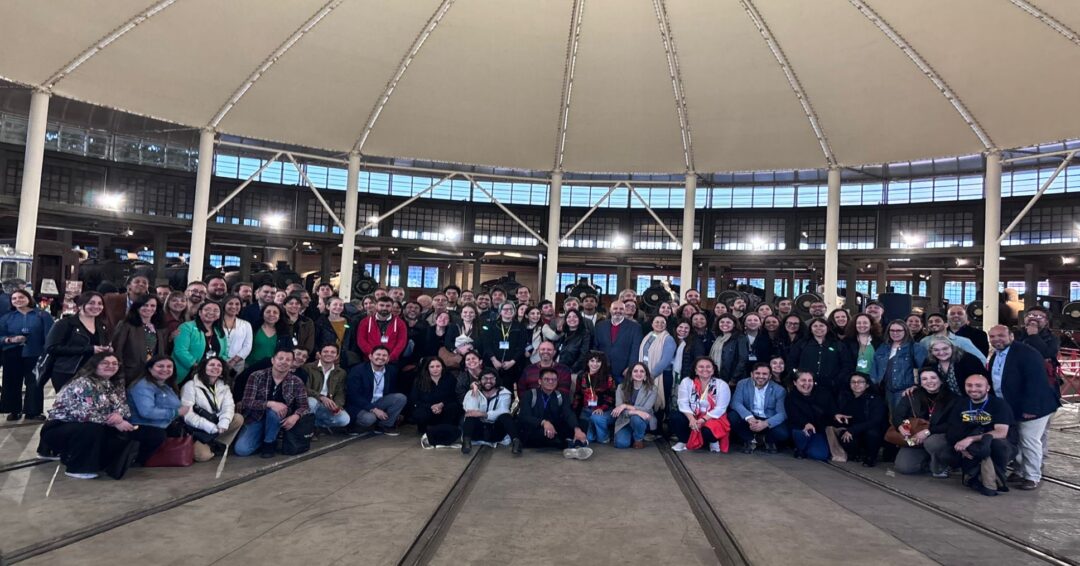From November 6th to 8th, 2024, Universidad de La Frontera in Temuco hosted the 10th Congress of the Chilean Association of Communication Researchers (INCOM)..
. The event, which marked the the tenth anniversary of the association,gathered more than two hundred attendees, including academics, researchers and students from various institutions across the country, as well as the team that makes up the #RegulaciónConvergente project.
Nearly 120 lectures, eight panels, ten book launches and 13 posters were presented during the congress, which has consolidated as a major academic activity in the field of communication in Chile.
Among the outstanding lectures, #RegulaciónConvergente researchers Chiara Sáez and Patricia Peña presented “Supranational Bodies and Regulation of Communications within the Digital Scope: Comparative Analysis and Implications for the Chilean Case”.
In their presentation, the academics at the Faculty of Communication and Image of Universidad de Chile analyzed the role of multilateral organizations such as the OECD, UNESCO and the European Commission’s DG Connect in delivering guidelines and guidance for the regulatory challenges posed by digital convergence.
Sáez remarked that “this analytical exercise also allows us to incorporate into the research project a comparative analysis of different organizations in terms of the impact they have on Chile, as well as the strength or weakness of their guidelines regarding follow-up and support mechanisms for the countries they influence”.

Another relevant presentation was “Measurement Indicators for a Convergent Regulatory Institutionalism of Communications (IRCC)”, by co-researcher Javier García and research assistant Jorge Avilés. This work proposed a set of indicators aimed at assessing and strengthening a regulatory institutionalism that responds to the needs of a convergent communication environment, emphasizing the importance of adaptive and effective regulation in the current digital context.

In turn, Patricia Peña expounded on the Sof*IA chatbot project, an initiative that addresses digital gender-based violence (DGV) by receiving, guiding and monitoring cases reported by female users of social media. Based on feminist principles, the chatbot seeks to empower women by offering legal information, emotional support and digital safety recommendations while generating data to identify patterns of violence. With a participatory methodology, it co-creates solutions with survivors and feminist organizations, promoting an ethical approach centered on the needs of the users. Sof*IA not only provides technical assistance but also educates and promotes a critical and solidary digital citizenship.

The congress was also the setting for the presentation of two important publications developed by part of the Fondecyt Project 1230748 team.
“Pluralismo Mediático y TV de Proximidad” (Media Pluralism and Proximity TV) by Chiara Sáez, Fernando Fuente-Alba and Jorge Avilés, published by UCSC Ediciones in 2024, addresses television pluralism in Chile from the perspective of regional, local and community media, presenting data about information pluralism in free-to-air television and the determining factors for its standardized measurement.

“Libro Blanco del Audiovisual Comunitario en Chile” (White Paper on Community Audiovisual in Chile) by Chiara Sáez and Jorge Avilés, published by Palinodia in 2024, was also launched. It offers a comprehensive analysis of the community audiovisual sector in the country.
Hosting this congress at Universidad de La Frontera, which was also the venue for the first congress in 2014, symbolizes a return to the origins of INCOM and reaffirms this organization’s commitment to development and reflection on communication throughout Chile. The event had support from the Doctorate in Communication of Universidad de La Frontera and Universidad Austral de Chile, as well as the Vice-Rectory of Research and Postgraduate Studies of UFRO. It has consolidated as a fundamental space for academic exchange and the discussion of current challenges in the field of communications.



